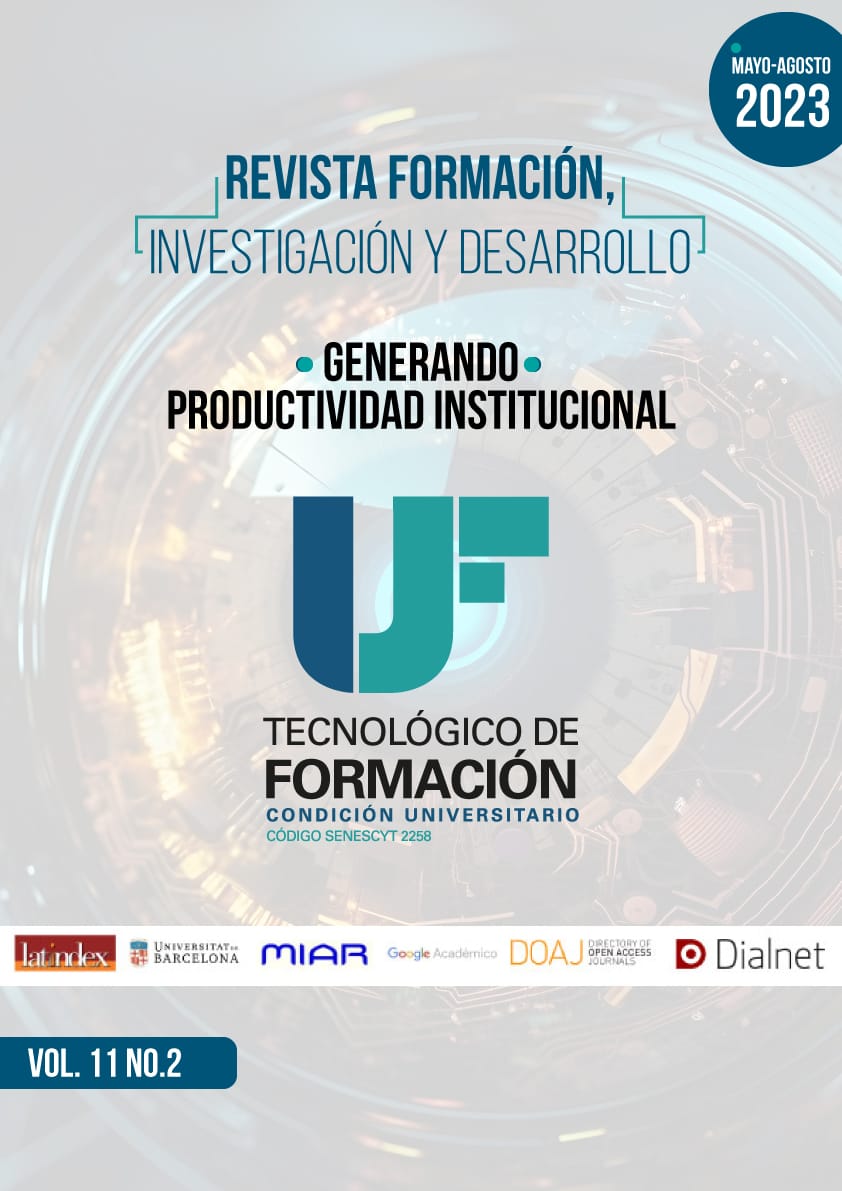The family and language development in early childhood
Main Article Content
Abstract
The continuous improvement in educational matters that occurs in current times, demand for
professionals and families with broad preparation with the requirement to contribute to the integral
educational training of the personality of the children, adolescents and young people who guarantee
quality of life and that allows them active performance in the various areas of social development.
That is why verbal communicative activity, from the oral expression contextualized in life, constitutes a
governing element on which attention should be focused. This, without a doubt, becomes one of the
most incidence problems in preschool education, in recent decades. The analyzes carried out to
corroborate that there are insufficiencies in the preparation of the early childhood family to contribute
to the development of oral language and experiential understanding in fourth year children, which
implies that children's vocabulary (as well as) In this eternary phase, limitation evidenced the research
aims to offer suggestions of activities, based on daily experiences of the family, so that they can be
used to enrich vocabulary and oral understanding. The validity of the proposal is found with the use of
different methods, procedures and alternatives in favor of the application of workshops with the family,
which in turn constitutes a feasible, viable and valid route in the solution of the problem posed.
Article Details

This work is licensed under a Creative Commons Attribution-NonCommercial-ShareAlike 4.0 International License.
Todos los artículos publicados en la Revista de Investigación, Formación y Desarrollo: Generando Productividad Institucional (RIF) se distribuyen bajo la Licencia Creative Commons Atribución-NoComercial-CompartirIgual 4.0 Internacional (CC BY-NC-SA 4.0).
Los autores conservan sus derechos de autor y otorgan a la revista el derecho de primera publicación. Esto permite a terceros compartir y adaptar el contenido con fines no comerciales, siempre que se atribuya correctamente la obra original y se mantenga la misma licencia.
Para más información sobre la licencia, consulte: https://creativecommons.org/licenses/by-nc-sa/4.0/
How to Cite
References
Aparicio Pérez, D. T. (2018). El desarrollo del lenguaje entre los dos y cuatro años. (lechepuleva.es). www.lechepuleva.es/ninos-1-3-anos/desarrollo-lenguaje-dos-cua
Ares Muzio, P. (1998). Familia, ética y valores en la realidad cubana, artículo Revista Temas No. 15. Editorial del Instituto Cubano del Libro, La Habana.
Ares Muzio, P. (2002). Mi familia es así, Ed. Pueblo y Educación, La Habana.
Ares Muzio, P. (2002). Psicología de Familia. Una aproximación a su estudio. Editorial Félix Varela, La Habana.
Arias Herrera, H. (1996). La comunidad y su estudio. Editorial Pueblo y Educación. La Habana.
Castro Alegret, P. (2005). Familia y comunidad, Ed. Pueblo y Educación, La Habana, 2005
Colectivo de autores. (2005). La Personalidad su Diagnóstico y su Desarrollo. Editorial Pueblo y Educación.
Colectivo de autores (2005). Familia y escuela. El trabajo con la familia en el sistema educativo. Editorial pueblo y Educación. La Habana.
CUBA, MINED, Entorno al Programa de Educación Preescolar, Ed. Pueblo y Educación, La Habana.
Ferrer Serrahima, I. (2012). La artesanía de la educación: diálogo, escucha y lenguaje en la etapa de 0-6. Barcelona: Graó
García Gutiérrez, A. (2001). Programa de orientación familiar para la educación de la sexualidad de adolescentes. Tesis presentada en opción al grado de doctor en Ciencias Pedagógicas. Holguín.
González, A y Reinoso, C. (s/f). Nociones de Sociología, Psicología y Pedagogía. Editorial Pueblo y Educación.
León, O. (s/f). El lenguaje en la edad preescolar. Material en soporte digital.
Mendoza, A. y Cantero, F.J. (2003). Didáctica de la Lengua y la Literatura: aspectos epistemológicos, en Mendoza, A. (coord.), Didáctica de la Lengua y la Literatura. Madrid. Pearson Educación, 3- 32.
Nieto, E. (2006) El diagnóstico pedagógico integral. Material en soporte digital.
Núñez Aragón. E. (1995). ¿Qué sucede entre la escuela y la familia?, Editorial Pueblo y Educación, La Habana.
Palau, E. (2005). Aspectos básicos del desarrollo infantil. La etapa de 0 a 6 años. Barcelona: Ediciones CEAC.
Quiroz, Schrager (1993). Lenguaje, aprendizaje y psicomotricidad. Buenos aires. Argentina: Editorial Médica Panamericana S. A.
Torres González, M. (2003). Familia, unidad y diversidad, Ed. Pueblo y Educación.
Torruella, G. (2002). Aprendiendo a convivir, Ed. Pueblo y Educación, La Habana.

